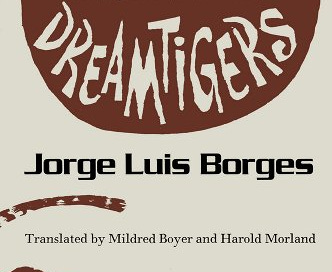'Dreamtigers': 'Reflections and Interpolations'
Jorge Luis Borges called this collection his most personal.
This post contains an affiliate link or links. If you use a link to buy a book, I may earn a small commission. You can find all the books that have been featured in this newsletter in my Bookshop store.
As a college student, my spouse worked in a bookstore with a generous employee discount. He used it often, and still has many of the books he bought with it. When I reached Argentina in my global reading journey, I thought I’d seen one of Argentinian writer Jorge Luis Borges’ books, purchased way back then, in one of our bookcases. Sure enough, my spouse pointed me to “Dreamtigers,” translated by Mildred Boyer and Harold Morland.
“Dreamtigers” is also known as “El Hacedor” (“The Maker”). It’s a collection of short prose and verse works which Borges calls, in an epilogue, a “hodge-podge” that “abounds in reflections and interpolations.” They rotate on a double-headed axis, creativity and imagination at one end, mortality at the other.
Conjuring an aging Saxon who has seen “the face of Woden,” the god of war, and the sacrifices to him, Borges muses:
Before dawn he will die, and in him will die, never to return, the last eye-witness of those pagan rites; the world will be a little poorer when this Saxon dies.
In another reflection, Borges ponders his own thoughts about objects turned symbols — an arrow, a lasso, a cross:
Why should I marvel at them, when there is not a single thing on earth that oblivion does not erase or memory change, and when no one knows into what images he himself will be transmuted by the future.
As a writer, Borges embodies creativity. He writes in his epilogue, “A man sets himself the task of portraying the world.” This we all do, day to day — the world is what we make of it as we pass through it. In the poems in the second half of “Dreamtigers,” Borges imagines others who have lived and what makes up their singular worldviews. And he pays homage to his homeland and what he makes of it:
My country, I have sensed you in the tumbledown
Decadence of the widespread suburbs,
And in that thistledown that the pampas wind
Blows into the entrance hall, and in the patient rain,
And in the slow coursing of the stars,
And in the hand that tunes a guitar,
And in the gravitation of the plain
In sharing this “miscellany,” Borges shares his ultimate creation, himself.



